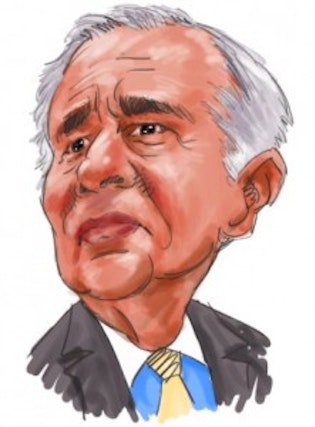
The company’s shares are in a tumble after their 2011 high above $25. Shares presently trade at slightly under $10 and are down 40 percent year-over-year, so the fund (which has already lost quite a bit on paper because of its large stake) is likely shoring up its stake in the company at this lower price. The company’s shares are trading at only 5.5 times 2012 consensus earnings estimates, and the company is trading at slightly below book value. The stock’s price/sales ratio is 0.14.
With the valuation of the company, the automotive market is perhaps getting riper, too. August auto sales might very well beat analyst estimates as General Motors Company (NYSE:GM) posted a 10 percent increase in sales for the month. The annualized sales rate for the broader automotive industry was 14.3 million for much of this year. However, both GM and Ford Motor Company (NYSE:F) anticipate the August sales rate to be between 14.5 and 14.6 million, representing an increase from earlier this year.
The company posted a loss in the second quarter, stemming largely from $119 million in impairment charges. This came out to a 60 cent per share loss, down from second quarter 64 cent per share earnings in 2011. However, without the impairment charges, the company would have posted a 53 cent per share gain, which is still a year-over-year decrease. The company posted revenue of $1.7 billion in the quarter, falling short of the $1.84 billion consensus estimate. This came out to a 6 percent decrease in sales year-over-year.
Federal-Mogul derived about 67 percent of its sales from OEMs for the year ending in June 2012, with the remaining 33 percent derived from the aftermarket segment. These two segments represent Federal-Mogul’s primary businesses. On September 4, the company split its aftermarket and OEM divisions, placing two chief executives in charge of either segment. This will allow the company to better position its brand in these areas and to serve its clients more efficiently.
The company has engaged in a number of joint ventures, mergers, and business sales in the recent past. In April, TPR Co Ltd (TYO:6463) and Federal-Mogul Powertrain, one of the company’s subsidiaries, have agreed to a joint venture operation that will both manufacture and sell cylinder liner for various automobile engines. Federal-Mogul will maintain a 46.1 percent stake in the joint venture. BorgWarner Inc. (NYSE:BWA) has agreed to sell its spark plug business to Federal-Mogul, though the terms of the agreement are yet to be solidified. BorgWarner Inc. operates manufacturing plants for spark plugs at two locations in Germany and France.
The company recently appointed a new CEO, Rainer Jueckstock, after its former CEO, Jose Maria Alapont, retired. New management will hopefully usher in an increase in the stability of the company’s performance. The stock has beta of around 2, so the company is very sensitive to fluctuations in the market and the auto market. Management has indicated in its second quarter report that it is working to decrease the cost of sales and production for the company as a whole. As with a number of auto manufacturers, Federal-Mogul is heavily leveraged: though its return on assets is 2.6 percent, its return on equity is -16.9 percent. That said, we think that a new corporate structure, along with an improving auto market, leaves a fair amount of upside to Federal-Mogul shares. Since the company is trading below book, there is also an attractive margin of safety to an investment in the company as well.





